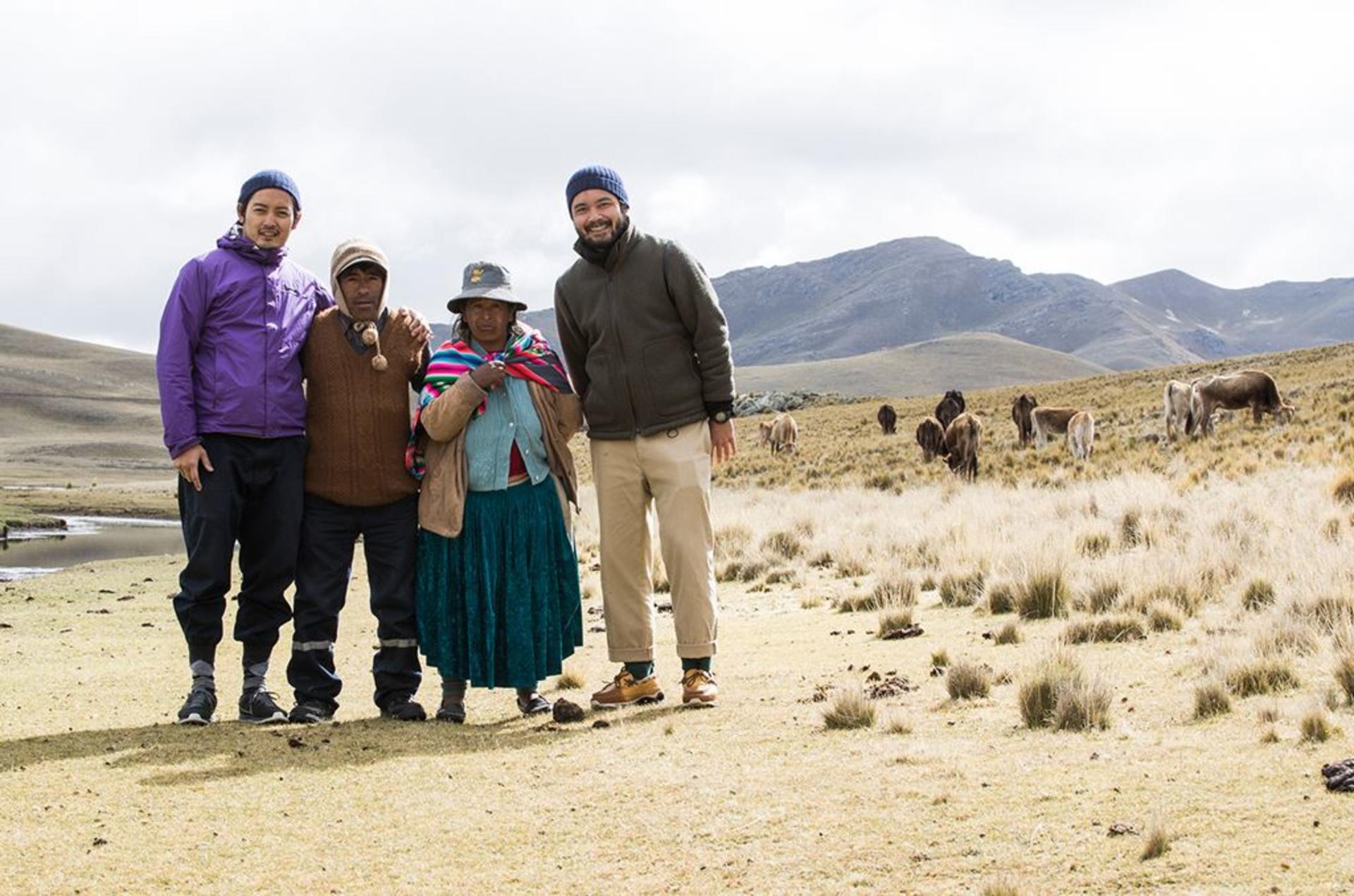Alpaca Project
Peru & Bolivia
This project represents our passion and mission to produce the finest alpaca knitwear and accessories in the world.
Country and region
The Andes in Bolivia and Peru.
Material
The finest traditionally herded alpaca.
Quality
Baby Alpaca / Royal Alpaca / Supreme Royal Alpaca
Micron range
16 microns - 24 microns.
Sustainability
We only source from traditionally herded alpaca through fair and direct trade with complete traceability throughout the supply chain.
Mission
Empowerment of the indigenous people in the Andes through fair and direct trade, healthcare and education.
Since 2006 we have travelled the South American Andes. Through this journey we have forged a partnership with Pacomarca Alpaca Research Facility to produce the finest alpaca fibre in the world.
Local alpaca herders working at Pacomarca.
The heart of the alpaca industry, the sorting plant.
The cheerful sorting plant manager.
The people of the Andes
Pacomarca is a research facility created due to the steady decline in the fine alpaca fibre production over the past 30 years in the Andean regions. The heritage, culture and way of life for the indigenous communities in these rural and harsh environments has been jeopardised through government abandonment resulting in lack of support from educational organisations and investment for the poorest people in the country. More than five million indigenous people live below the poverty line in the highlands of Peru.
Empowerment of women
Rural women are the worst affected and nearly 70 per cent of them are extremely poor. Rural women play an important role in the subsistence economy. They work in agriculture and tend livestock, such as alpacas, and they engage in income-generating activities. Women may represent as much as 80 per cent of a family’s labour force and thanks to their productive activities, in addition to traditional household tasks and child-care, women make it possible for their husbands to migrate in search of temporary work, often in the growing mining industry.
The mission
The Pacomarca project endeavours to breed pedigree alpacas, using state-of-the-art technology and specialised veterinarian personnel. Here they have created systems and hold seminars for the herding communities teaching basic shearing techniques and fibre sorting procedures, which empowers the herders with knowledge to generate a much greater income from their existing herds. As this is a vital aspect for fine alpaca fibre production, the herders have the opportunity to increase their revenue from the raw fibre without having to invest in expensive equipment. The motive and intention behind this initiative is purely to better the raw fibre needed for the fine-fibre market’s demand and to incentivise the indigenous communities’ original way of life without splitting families to create economic stability.
The finest alpaca
Our relationship with Pacomarca has resulted in a special partnership to produce the finest alpaca fibre available in the world. Together with new ideas and projects to create further income generating opportunities for the indigenous communities, we and Pacomarca endeavour to be in the vanguard of the fine-fibre production in The Andes.
The Extra Ordinary Alpaca Wool
Alpacas have been domesticated for over 5.000 years by the indigenous people of South America, for their exceptionally fine wool. The Incas, who once ruled the natural environment of the alpaca (Peru, Bolivia and Chile), spun the remarkable fibre to produce luxurious fabrics exclusively for their divine royalty.
A herd of alpacas and llamas.
Examining the fineness of the fibre.
The harsh environment of the Andes.
The warmth of nature
Alpaca fleece is soft and contains almost no lanolin, which makes it hypoallergenic. The unique hollow core of the fibre gives the alpaca wool a natural insulation that keeps in or lets out body heat according to body warmth and the temperature of the surrounding environment.






















































